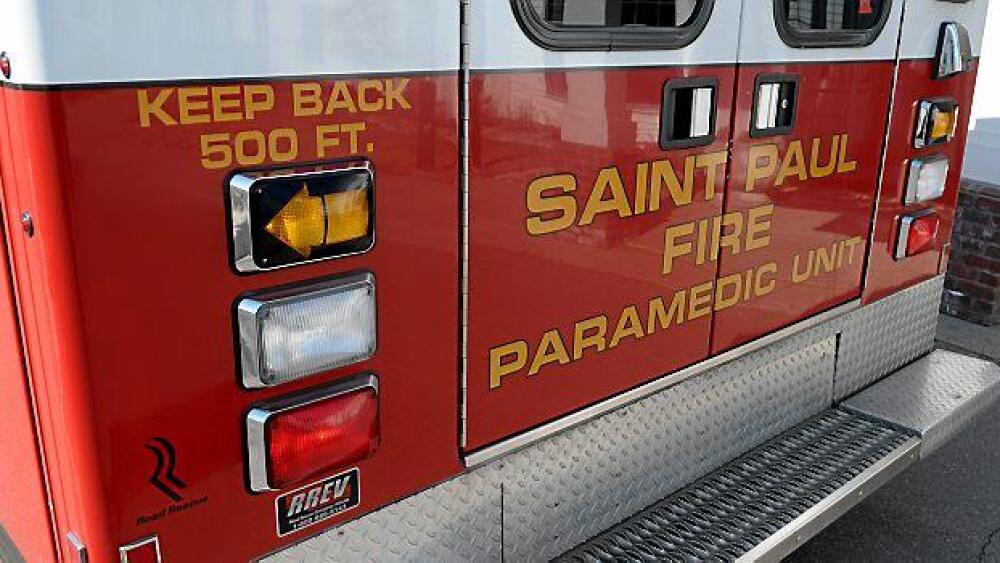By Mara H. Gottfried
Pioneer Press
ST. PAUL, Minn. — After a man sued the city of St. Paul and firefighters he says disregarded “obvious signs” that he’d had a stroke and told him the emergency room was full, the city is poised to settle his lawsuit for $295,000.
Ahmed Ali, who was 84 when the lawsuit was filed, previously lived independently but now requires 24-hour care, according to his lawsuit against the city’s paramedics and emergency medical technicians who responded to his family’s 911 call in 2022.
The St. Paul City Council is due to vote on the settlement Wednesday, an agenda posted Thursday shows.
“This was a sad event for Ali, his family, and the city,” said J. Ashwin Madia, one of Ali’s attorneys. “He’s grateful to have this matter resolved, and hopes that his case will help motivate St. Paul to update its training and procedures for responding to emergency calls of suspected stroke.”
There was an internal investigation, which was closed with no discipline, according to St. Paul City Attorney Lyndsay Olson.
“While the actions of our EMS and firefighters followed policy and protocol, we entered into a settlement with the plaintiff to avoid the expense and uncertainty of continued litigation,” Olson said.
Ali filed the lawsuit in Ramsey County District Court in April 2023 and the city sought to dismiss it. After a hearing in March, Judge Stephen Smith ruled in June that the portion of Ali’s lawsuit alleging medical malpractice could move forward. He wrote there were factual disputes between information from Ali’s lawsuit and from the city.
Smith dismissed the lawsuit’s assertion that Ali had been discriminated against on the basis of race and national origin, writing that he found “insufficient factual allegations” to support the claim.
The lawsuit
The lawsuit filed by attorneys Madia, Zane Umsted and Charlie Alden provided the following information:
Ali took a walk with his son, Hassan, on Nov. 2, 2022. At about about 9 p.m., Ali “begins to exhibit classic signs of stroke.” He had weakness in his right arm and leg, his right leg was dragging, his right arm was shaking, and his neck and head drooped to one side.
Hassan got Ali back to his apartment, monitored his father’s condition and called 911 at 10:42 p.m. The St. Paul Fire Department provides emergency medical care in St. Paul, and all its firefighters are paramedics or EMTs (the lawsuit and other court documents refer to all of the responders as paramedics).
Paramedics arrived to Ali’s apartment at 10:51 p.m. Hassan also called his cousin, Dr. Mohamed Abdihalim, who is a neuroradiologist in St. Paul and works with stroke patients daily. He explained Ali’s condition to Abdihalim, who was “unequivocal and adamant” and told the paramedics that his uncle was having a stroke and needed to be taken to the emergency room.
Paramedics asked about Ali’s medical history. Abdihalim told them his uncle was diagnosed with Parkinson’s disease a year earlier and had high blood pressure. “He explains that notwithstanding his Parkinson’s diagnosis, Ali has never exhibited neurological symptoms like this from Parkinson’s,” the lawsuit said.
Paramedics checked Ali’s blood pressure and blood sugar levels, and conducted an electrocardiogram, Judge Smith wrote in a summary. They concluded “the results all fell within normal ranges.”
Ali said in his lawsuit that the paramedics tried to have him walk and squeeze their fingers, but he was unable to do either. Paramedics said his symptoms were “manifestations of his Parkinson’s disease,” but his son repeated what Abdihalim had stated about the problems only arising that night.
Dispute over stroke test
Ali’s lawsuit says paramedics didn’t conduct all the tests required by a pre-hospital stroke scale “and/or ignored the positive results,” Smith wrote in his summary.
The city, however, wrote in a court document that firefighters performed the stroke test and that “where the discretion lies is in interpreting the results.”
Ali also said his family insisted that paramedics take him to the hospital and they “refused … intimating … it would be a long time before he would see a doctor because the emergency room was full of Covid patients,” the judge’s summary said. Paramedics, meanwhile, said Ali decided not to go to the ER because of concerns about COVID and a lengthy waiting time, the summary continued.
Ali’s lawsuit said the paramedics asked him to mark their form to indicate he “refused” transport to the emergency room, though his suit emphasizes that he is a Somali immigrant who can’t read or speak English. The paramedics left his apartment 10 minutes after making contact with him.
Hasan stayed with his father through the night and took him to the hospital in the morning. An MRI showed dozens of strokes throughout Ali’s left part of his brain. Because of the amount of time that had passed since Ali’s stroke symptoms started, medical providers couldn’t provide him with a “clot-busting” drug, the lawsuit said.
“The paramedics’ failure to get Ali to the emergency room, where (the medication) could be administered, resulted in permanent damage to Ali’s brain and body,” the lawsuit alleged. “The stroke spread through his brain and resulted in permanent right-side impairment (and) weakness.”
Hassan quit his job to care for his father full-time.
A review of Ali’s claims in the lawsuit by the Minnesota Emergency Medical Services Regulatory Board’s complaint review panel didn’t “result in any adverse findings that (the workers’) actions fell below the standard of care,” the city wrote in a court document.
©2024 MediaNews Group, Inc.
Visit at twincities.com.
Distributed by Tribune Content Agency, LLC.



















